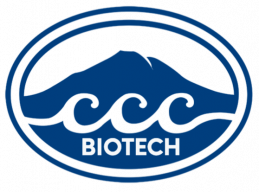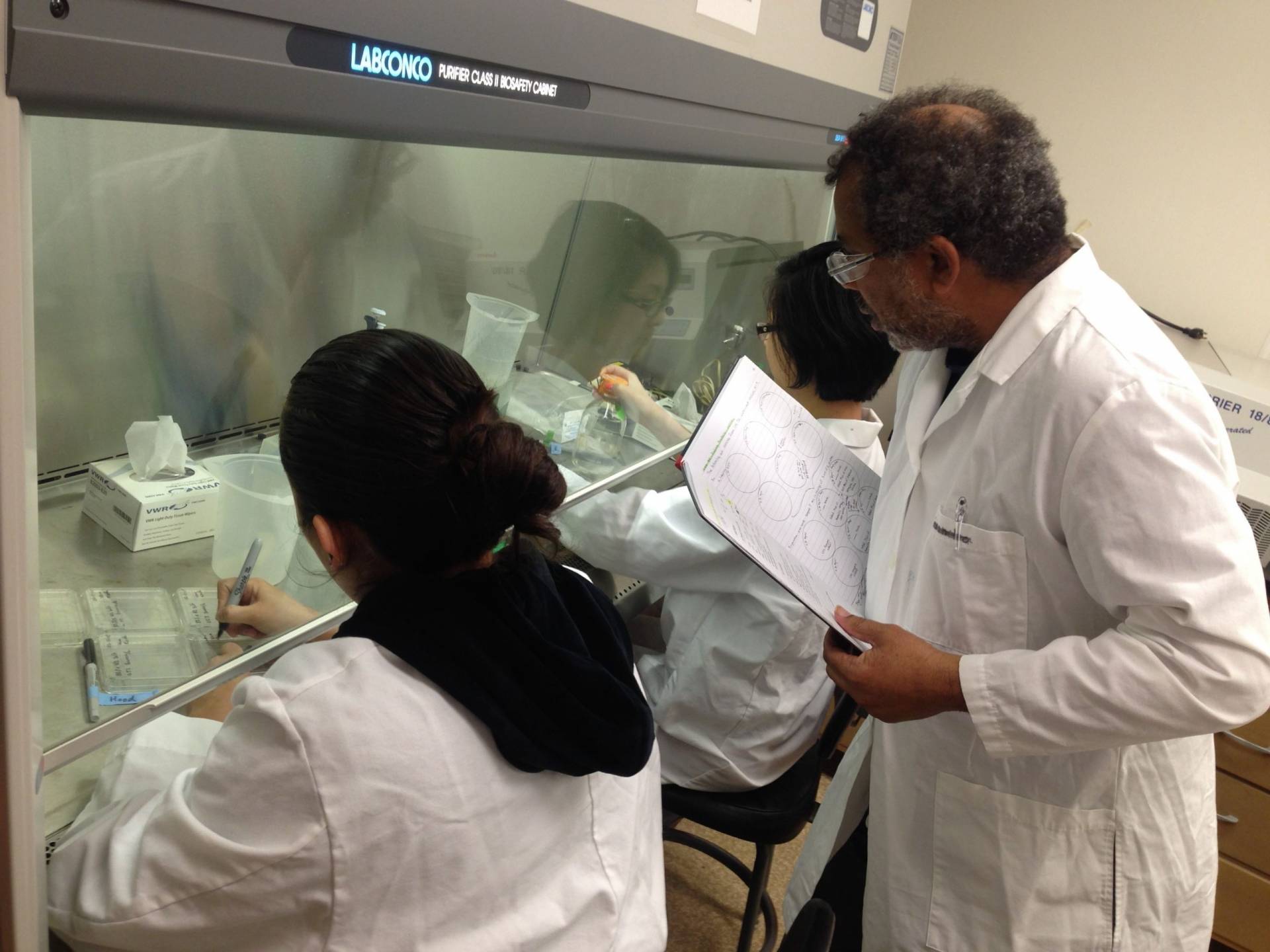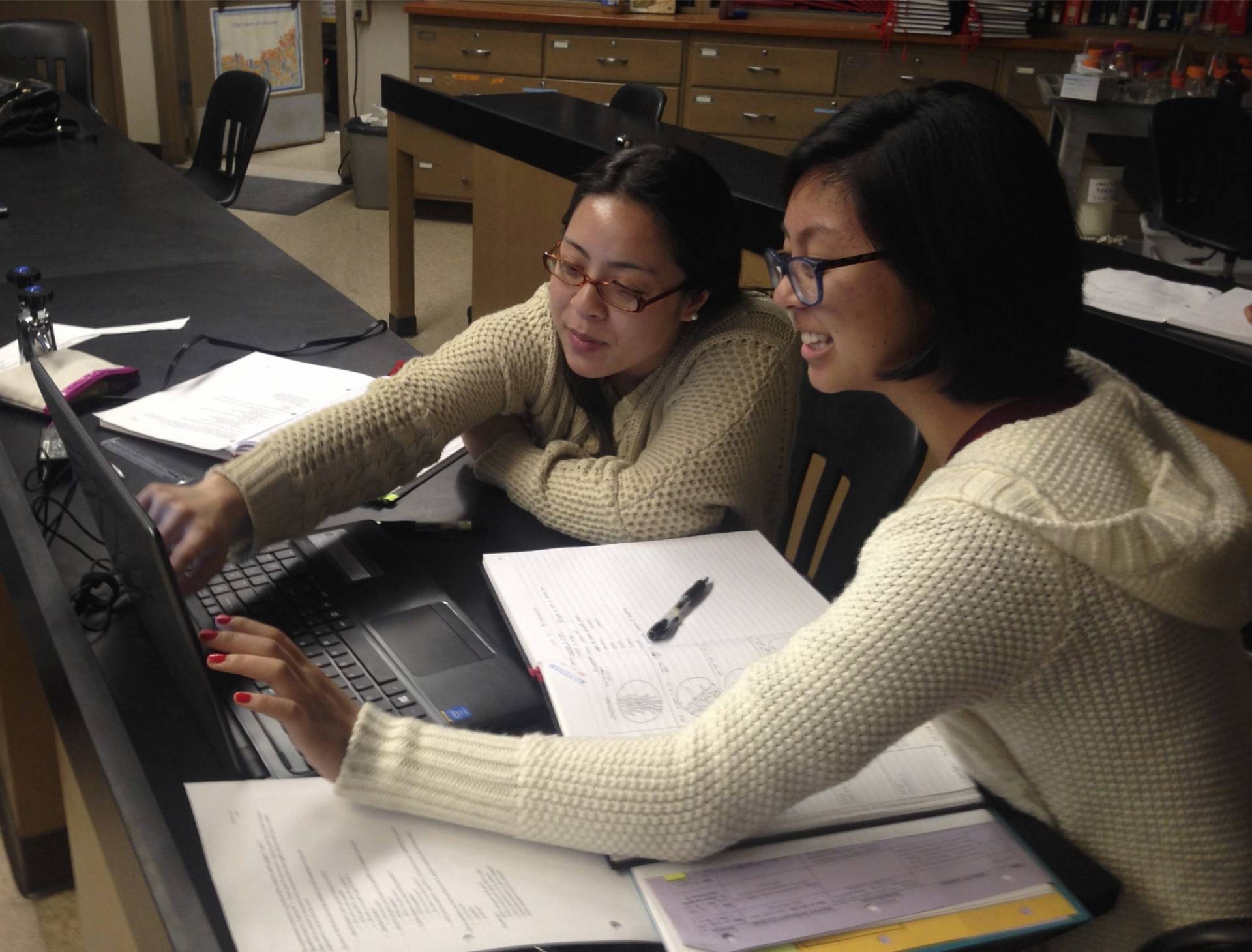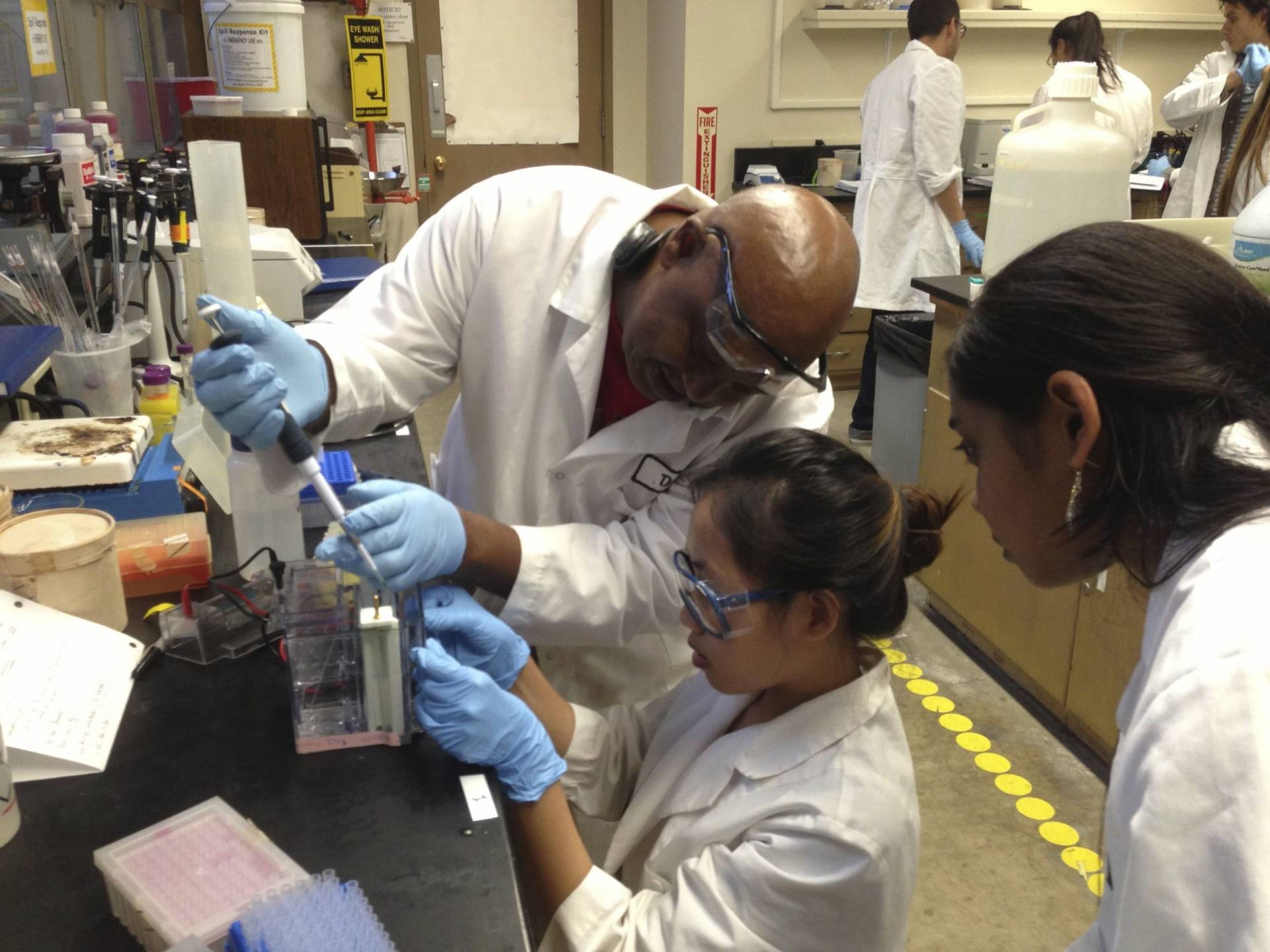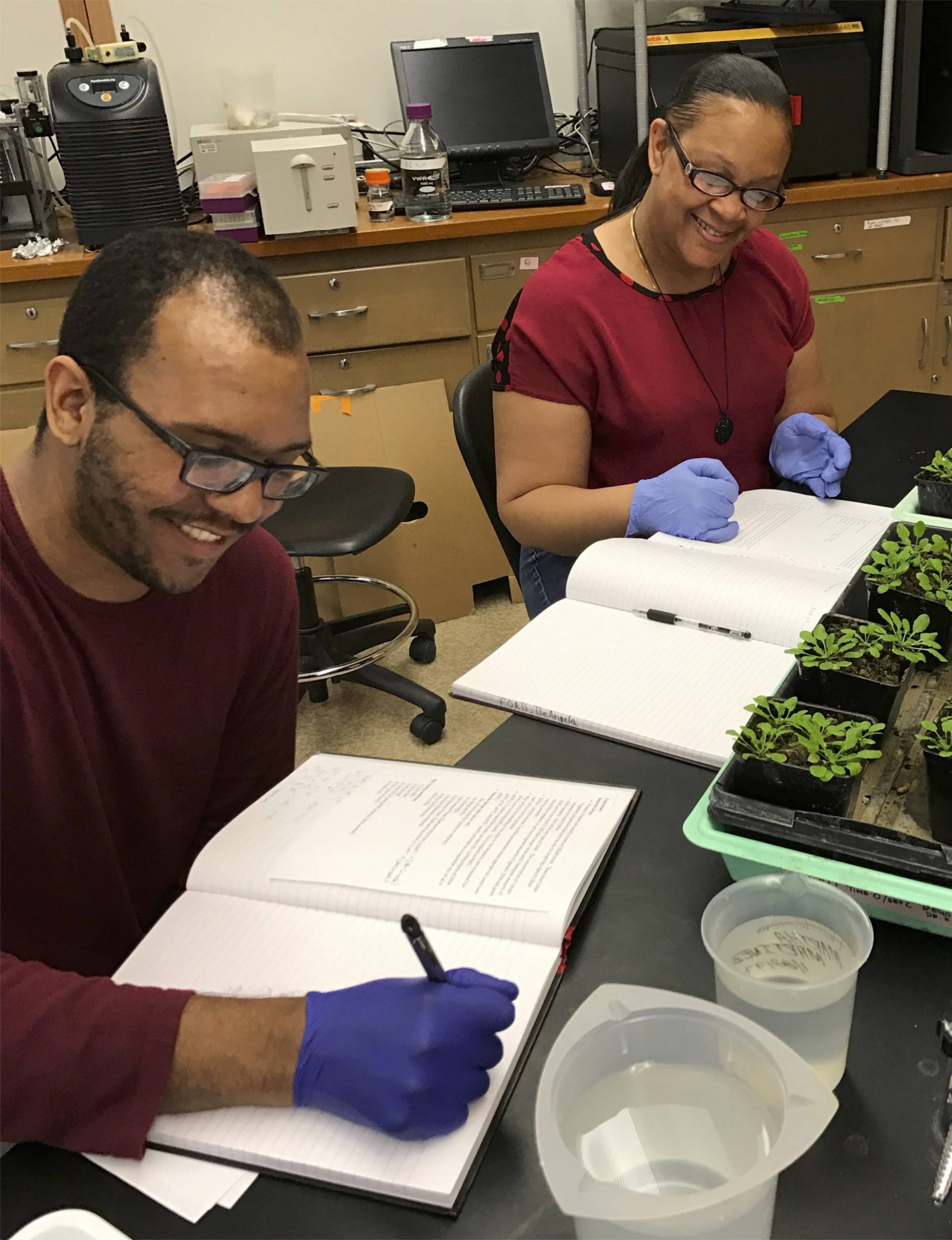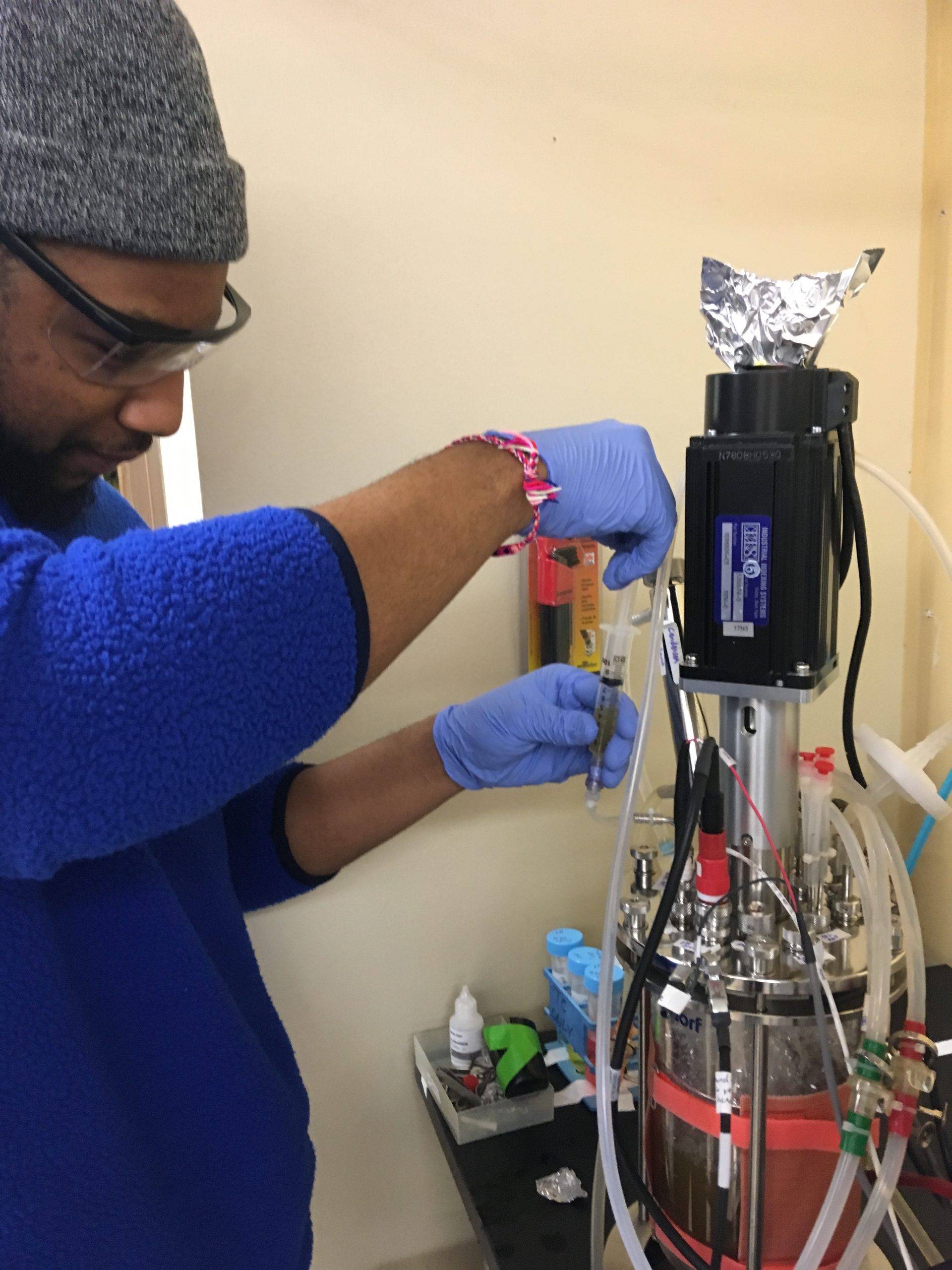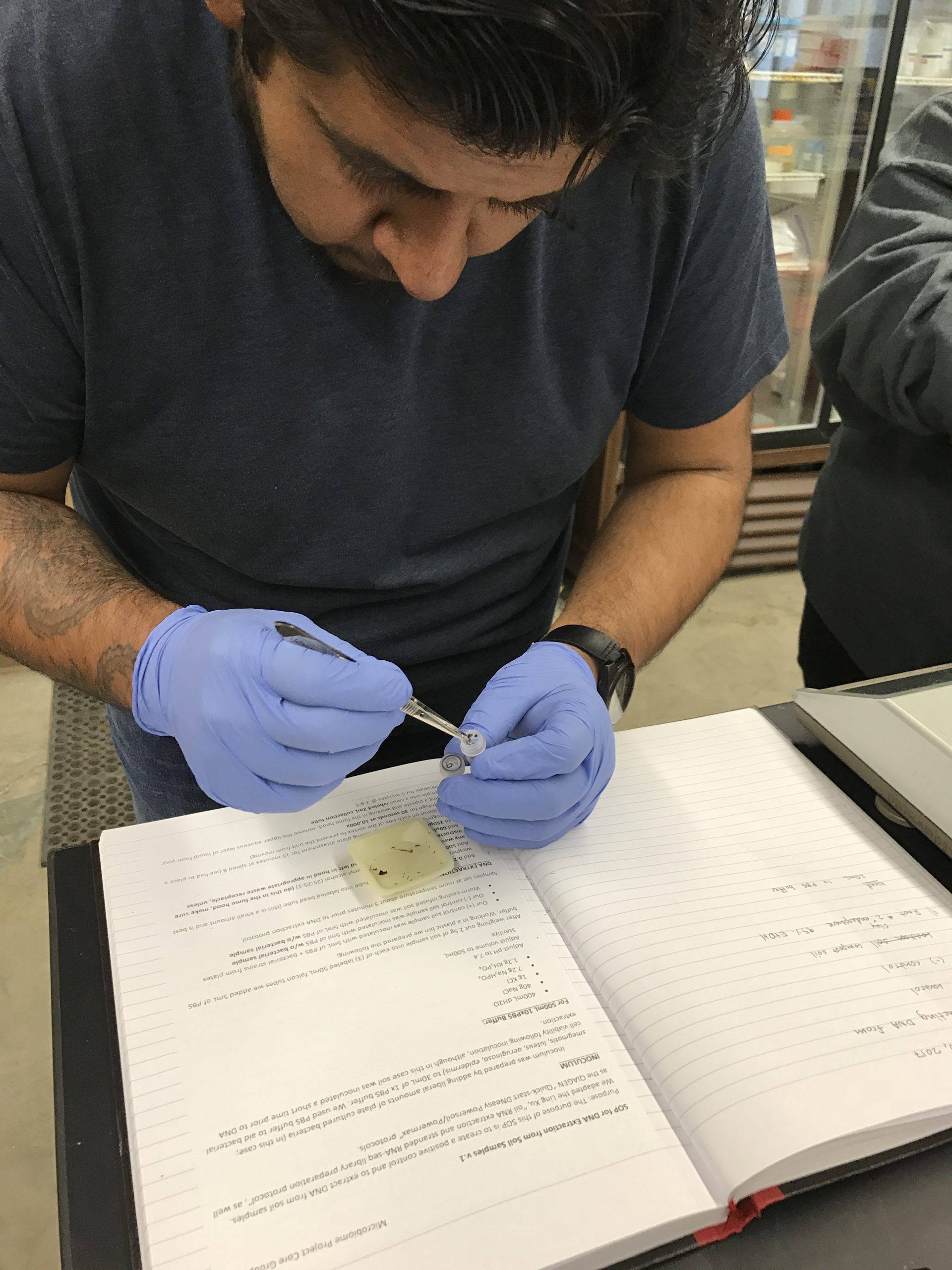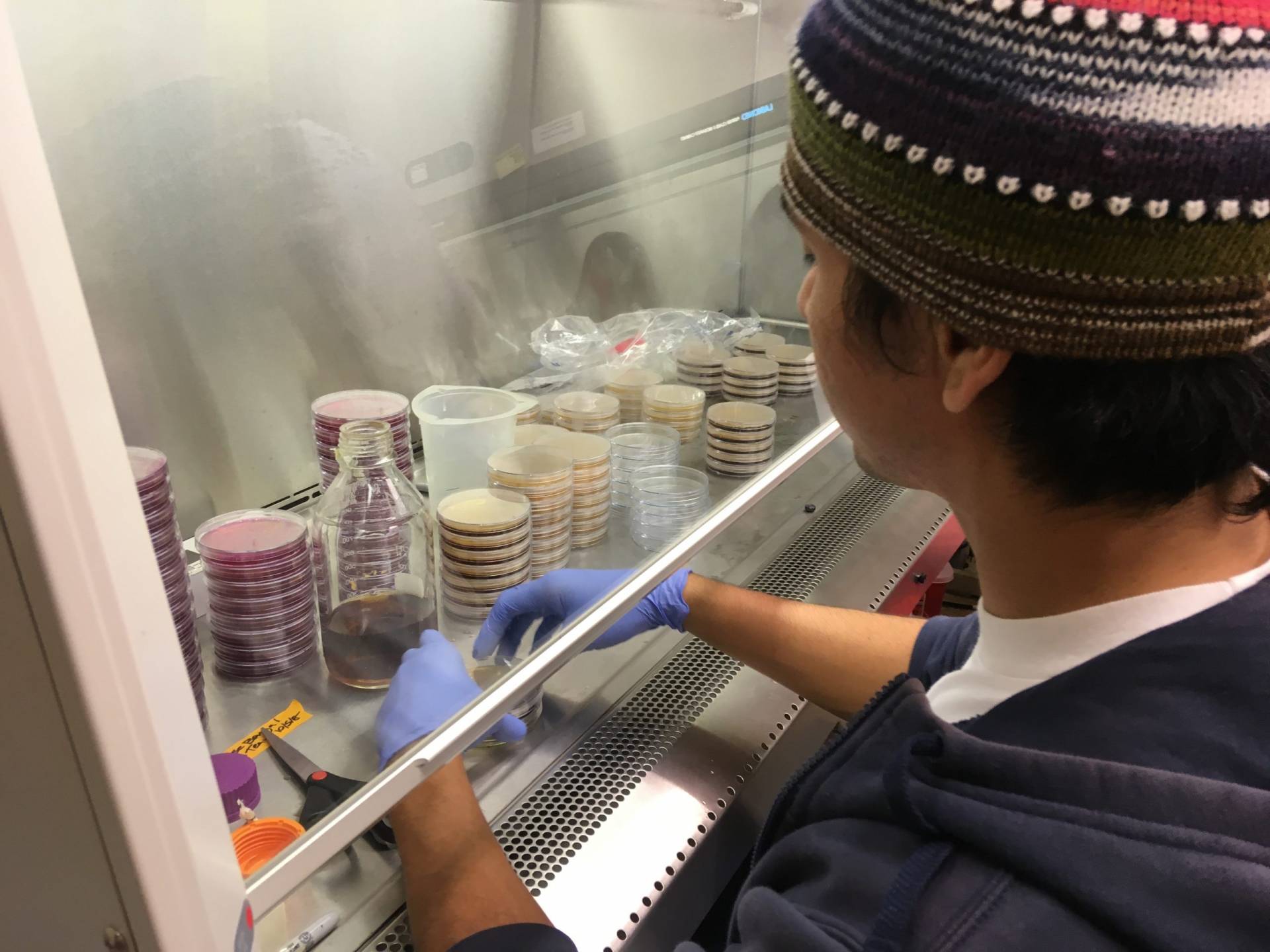We have great courses and certificates to build your life science employability and salary no matter what your level of experience. From a science novice to someone already working in biotech, you can learn a lot here at CCC’s biotech program. Explore individual certificates below, or investigate individual courses here.
Biotechnology Assistant Certificate
Key Competencies
- Lab notebook
- Basic lab calculations
- Use of lab equipment
- Safe and productive work environment
- Career interest in life science
- Communicate clearly with written documents
Job types
- Media prep assistant
- Manufacturing technician
- Lab assistant
Course requirements (4 courses total)
- Biotech Lab Course: BIOSC172L – Introduction to biotechnology lab (1U)
- Reading and Writing Proficiency ENGL1A or ENGL142B (4U)
- Mathematics Proficiency: MATH120, MATH118, MATH122 or MATH125 (4-5U)
- Career exploration & Success: COUNS103A, COUNS130, or COUNS120 (1.5-3U)
Who should take this?
- Exploring life science or heath career, but want to leave options open
- Starting STEM major and want hands-on training and employment potential right away
more details about Biotechnology Assistant Certificate here
Biotechnology Technician Certificate
Key Competencies
- Maintaining detailed lab records
- Scientific communication of biology and life science
- Lab processes and procedures
- cGMP and GLP
- Batch records
- Regulations affecting the biotechnology field
- Explain common life science techniques (PCR, chromatography, sequencing)
- Follow SOP’s
- Accurate data collection
Job types
- Laboratory Technician
- Research Associate
- Manufacturing Technician
- QA/QC Technician/ Analyst
Course requirements (6 courses total)
- Core Biotechnology Course #1: BIOSC172 – Introduction to biotechnology (3U)
- Core Biotechnology Coure #2: BIOSC157/9 – Foundations in biotechnology (3U)
- Advanced Lab course #1: BIOSC186, BIOSC188, BIOSC183, BIOSC182 or BIOSC147 (2-4U)
- Advanced Lab course #2: BIOSC186, BIOSC188, BIOSC183, BIOSC182 or BIOSC147 (2-4U)
- Business and communication: BUS120 or SPCH120 (3U)
- Computer and data proficiency: MATH164, CIS135, BOT224 or BOT226 (3.5-4U)
Who should take this?
- STEM majors who need quality hands-on experience to secure employment or internships in labs or companies
- Those wishing to be employed right away in the life science/biotechnology industry
more details about Biotechnology Technician Certificate here
Biotechnology Associate of Science Degree
Key Competencies
- Graduates have a solid foundation in the basics of biology and an understanding of the breadth of the biotech industry. A.S. degree holders likely have the strongest biology and science background, including the typical lower-level science requirements for biology majors.
- Graduates are enthusiastic about the field and have the courage and ability to think critically about their projects. They are willing to both explore available information independently and also direct questions to appropriate co-workers when solving problems and improving efficiencies in their work.
- Graduates always ask about safety considerations when learning a new protocol, understand what typical hazard symbols mean, and are trained to work safely and productively at all times. Action item is to include this in pre-lab requirements
Job types
- Research Associate
- Manufacturing Technician
- QA/QC Technician / Analyst
Course requirements (9 major courses for 27 units plus general education for a total of 60 units)
- Core Biotechnology Course #1: BIOSC172 – Introduction to biotechnology (3U)
- Core Biotechnology Course #2: BIOSC172L – Introduction to biotechnology lab (1U)
- Core Biotechnology Coure #3: BIOSC157/9 – Foundations in biotechnology (3U)
- Core Biotechnology Course #4: BIOSC147 – Molecular and Cellular biology (4U)
- Core Biotechnology Course #5: CHEM120 – General College Chemistry I (5U)
- Advanced Lab course #1: BIOSC186, BIOSC188, BIOSC183, BIOSC182 (2U)
- Advanced Lab course #2: BIOSC186, BIOSC188, BIOSC183, BIOSC182 (2U)
- Business and communication: BUS120 or SPCH120 (3U)
- Computer and data proficiency: MATH164, CIS135, BOT224 or BOT226 (3.5-4U)
- General Education: Language and Rationality, Oral Communication and Critical Thinking, Natural Science, Arts and Humanities, Social Sciences, Mathematics Proficiency
Who should take this?
- Those wishing a career in the life science/biotechnology industry
- Those wishing to transfer to a bachelors degree program in biotechnology
more details about Biotechnology Associate of Science Degree here
NON CREDIT CERTIFICATES
Laboratory Professional I
Key Competencies
- Scientific sampling
- Scientific analysis
- Data collection
- Prepare and present scientific work, data, and laboratory analysis to a wide variety of audiences
Job Types
- CCC-BEST on-campus internship
- Internships at university, government, and life science industry labs
- Laboratory employment
Course Requirements
- Scientific Communication: BIOSC876N – Science Communication: Professional Report, Workshop, Public Media (18-54 hours)
- Professional Laboratory Skills (choose one option): BIOSC857N/859N – Foundations in biotechnology non-credit version (108 hours) or BIOSC888N – Biotechnology Operations: Analytic Lab, Bioprocessing non-credit version (36-234 hours)
Who should take this?
- STEM students preparing for a summer internship
- Those interested gaining experience through real-world projects (Soil Microbiome Project with Urban Tilth and Phyllostart)
- Those wishing to practice effective communication of scientific information and data
more details about Laboratory Professional I certificate and internships here
Biological testing technician
Key Competencies
- Lab processes and procedures
- Maintaining detailed records
- Comply with regulations and standards
- Perform measurements, tests or assays and present data in an appropriate manner
Job Types
- Cannabis industry
- Food safety
- Medical diagnostics lab
Course Requirements
- Work skills in preparation for applied life science projects: BIOSC875N – Hands-on introduction and practice of technical analysis work by doing short lab projects (15-108 hours)
- Technical Laboratory Skills: BIOSC857N/859N – Foundations in biotechnology non-credit version (108 hours)
- Safety and Efficacy of Regulated Products: BIOSC882N – Understand government regulations for variety of life science products such as cannabis, prescription drugs (pharmaceuticals), and more.
Who should take this?
- Certified testing lab technician
- Medical diagnostics (such as COVID-19 testing)
- Cannabis testing
- Food nutrition and safety
- Environmental monitoring
more details about Biological Testing Technician certificate and cannabis industry here
Biological Manufacturing Technician (coming soon!)
Key Competencies
- Current cGMP (Good Manufacturing Practice)
- Working in a regulated environment
- Scientific sampling and analysis
- Data collection
- Production of a quality product for a customer
Job types
- Biomanufacturing
- Cannabis industry
- Life science laboratory
Course Requirements
- Technical Laboratory Skills: BIOSC857N/859N – Foundations in biotechnology non-credit version (108 hours)
- Safety and Efficacy of Regulated Products: BIOSC882N – Understand government regulations for variety of life science products such as cannabis, prescription drugs (pharmaceuticals), and more.
- Advanced Manufacturing Process Skills (choose one of the following): BIOSC883N – Eukaryotic Cell Culture (72 hours), BIOSC886N – Purification and Analysis of Biological Molecules (72 hours) or BIOSC888N – Biotechnology Operations (72 hours)
Who should take this?
- People focused on building job skills rather than a degree
- STEM students or graduates looking for employment
- Cannabis manufacturing and testing
- Biomanufacturing focus
